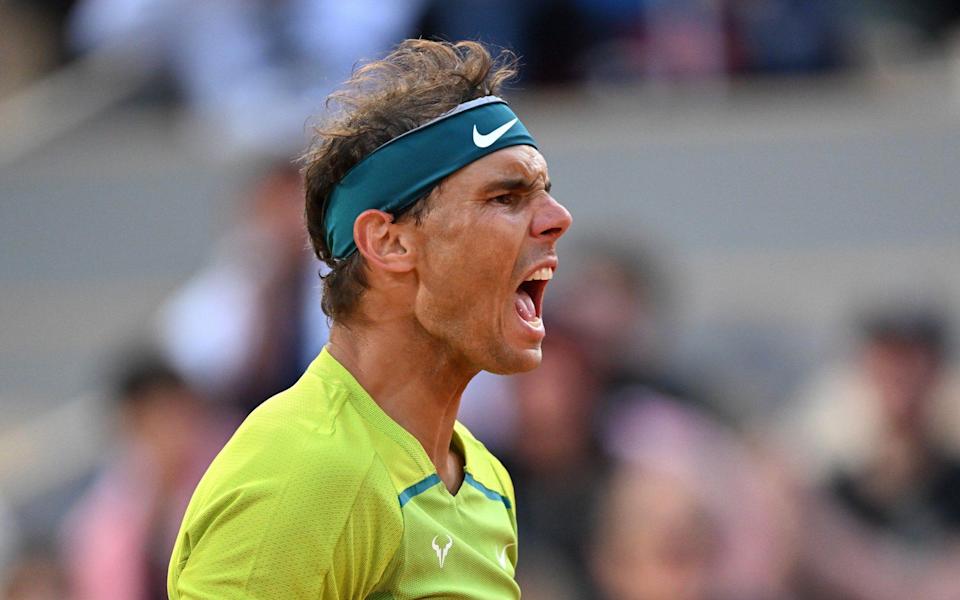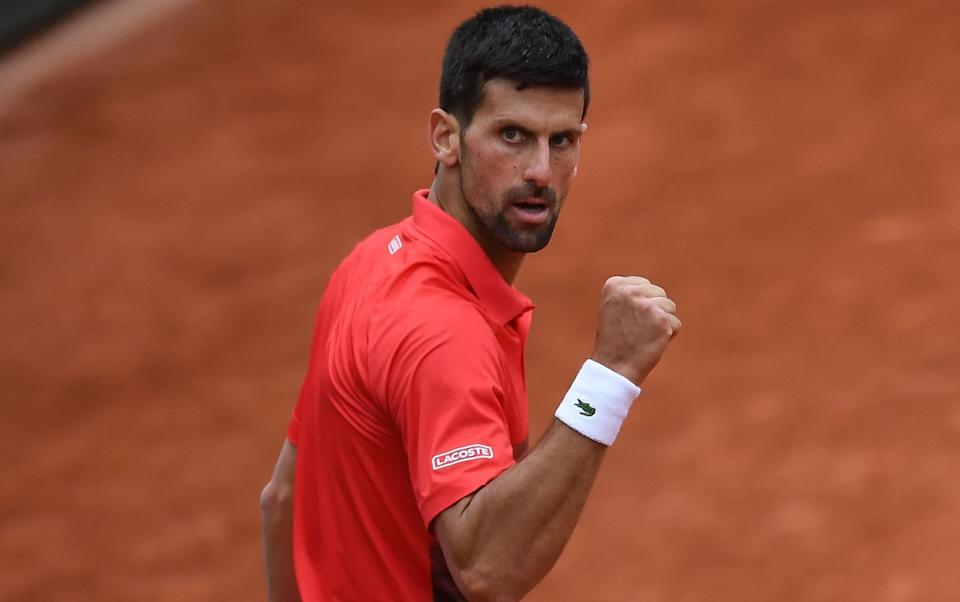
Rafael Nadal’s camp has expressed frustration that he has been forced to play his big French Open showdown with Novak Djokovic late on Tuesday night for what the Spaniard’s coach Carlos Moya called “business” reasons.
This might seem like a mere detail, but Nadal is twice the player on a warm afternoon when his booming topspin forehand bites and spits off the red clay. Once dusk arrives, and the evening grows chilly, his attacking options fade along with the last rays of the sun.
On Monday, Radio Monte Carlo asked Moya if the decision to start his quarter-final against Djokovic at 8.45pm was disrespectful to Nadal.
Moya replied that he wouldn’t go that far, but then added “Rafa has credit, he has won the tournament 13 times and if he has a request you should listen to him. He is part of the history of Roland Garros, we know that no-one is bigger than the grand slam tournaments, but in the end it’s about business and we understand.”
Nadal had tried to apply pressure to tournament director Amelie Mauresmo on Sunday, telling reporters that this could potentially be his last-ever match at a venue he has dominated for almost two decades.
“If things don’t go well, Tuesday’s could be my last game here,” said Nadal. “That’s why I’d like to play it during the day. I know the tournament by day, not so much by night, because that’s how I’ve played it all my life.”
However the decision was reached, the selection of an evening start will surely be welcomed by Djokovic. Colder weather should mean that Nadal’s celebrated forehand bounces up into Djokovic’s preferred strike-zone at around hip height, as opposed to the uncomfortable area around his shoulder.
These new night sessions – which have arrived in earnest for the first time this year – have been a mixed blessing for the French Open’s spectator experience.
Whatever the tournament’s commercial department might think, Paris in springtime bears little resemblance to balmy Melbourne in January, nor sultry New York in September. During Carlos Alcaraz’s win over Karen Khachanov on Sunday night, fans were forced to stand up and dance around during changeovers in an attempt to stave off hypothermia.
Financially, though, Amazon Prime’s exclusive contract to broadcast night-session matches has brought in an extra €15 million (£12.7m) per annum for the French Tennis Federation, to add to the €10 million (£8.5m) paid by free-to-air French TV for the rest of the action.
Despite his peerless record in Paris, Nadal is seen by most observers as the second-favourite for this match, especially after needing almost four-and-a-half hours to grind his way past Felix Auger-Aliassime on Sunday. Earlier the same afternoon, Djokovic had disposed of Diego Schwartzman in ruthless and routine style.


Nadal will have the crowd on his side
At least Nadal will have the crowd on his side. There was a period in the middle of the 2010s when his popularity dipped in Paris, out of sheer fatigue at his invincibility. But now that he is approaching the end of the line, he is enjoying an Indian summer of popularity.
Djokovic, by contrast, has felt the chill of an unseasonably wintry Paris. On Sunday, a handful of fans on Court Suzanne Lenglen booed him as he took the court against Schwartzman. We might dismiss this as a one-off, except that his name was also booed when it came up during Nadal’s post-match interview on Court Philippe Chatrier.
Will winning the popular vote help Nadal? Not necessarily, according to another divisive tennis giant in John McEnroe. “I think it’s unfair, personally, but it sort of fuels him,” said McEnroe of the anti-Djokovic feeling. “He handles it better than anyone I’ve ever seen. I didn’t do it as well. I felt like it affected me more than it helped me. I think there were times where it fuelled me but he consistently has done it. He’s a remarkable player and person.
“I remember when I came out onto the court, 90 per cent of the fans would give me a nice round of applause,” added McEnroe, who is in Paris to commentate for Eurosport. “But I’d focus on the 10 per cent. I don’t have a good explanation for that other than it seems the way us human beings work generally. It’s hard to remain positive all the time, to play the way Rafa does. If it was easy everyone would do it, playing every point like it’s your last point. There’s only been a handful of guys capable of doing that.”
Watch every match from Roland-Garros live and exclusive on discovery+ and Eurosport
